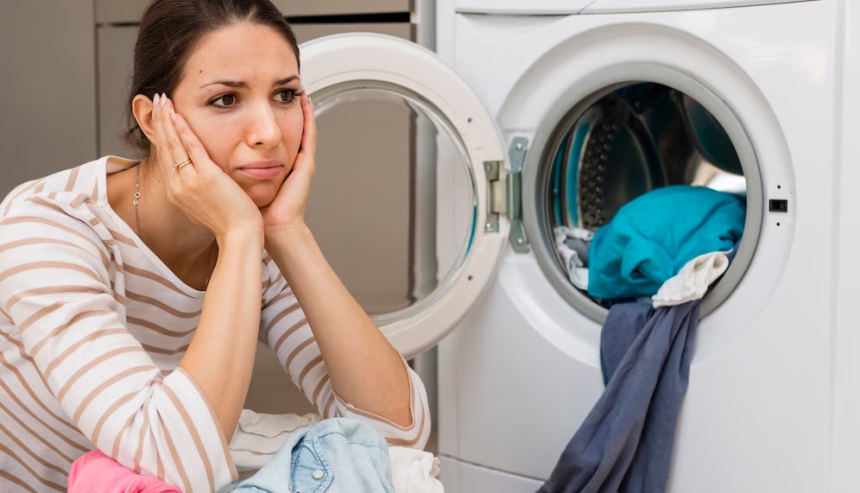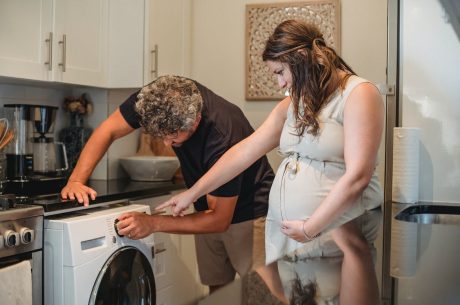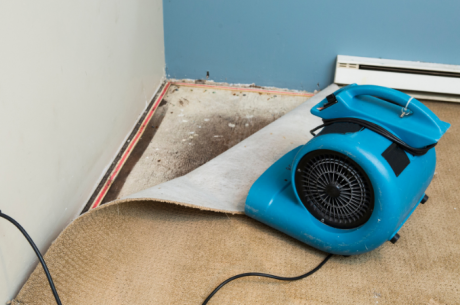Laundry day should be simple, right? Sort, load, add detergent, and press start. But what happens when you press that start button and water starts pouring out from the bottom of your washing machine? It’s a real head-scratcher. If you’re reading this, chances are you’ve encountered a common household problem: your trusty washing machine is leaking water from the bottom during the fill cycle out of nowhere. But don’t panic, as we’re here to help you solve this mystery.
In this blog post, we’ll talk about the depths of this issue, explain why it happens, and share some tips on how to fix it. Ready to roll up your sleeves and get to the bottom of this watery mess? Let’s begin!
Why Does My Washing Machine Leak During the Fill Cycle?
Before we tackle the solution, let’s understand the problem. A washing machine leaking during the fill cycle can be caused by various factors. Let’s break them down one by one:
- Faulty Hose Connection: One of the most common reasons for a washing machine leak is a loose or damaged hose connection. Check both the inlet and outlet hoses for any visible cracks, tears, or loose fittings. If you spot any issues, it’s time to replace or tighten the hoses.
- Damaged Door Seal: Front-loading washing machines have rubber door seals that can degrade over time. This deterioration can lead to water seeping out during the fill cycle, resulting in water damage over time. A damaged seal needs to be replaced promptly to prevent further leakage.
- Clogged Drain Pipe: A blocked drain pipe can cause water to back up and overflow, mimicking a leak from the bottom of the machine. Ensure that the drain pipe is clear of any debris or clogs.
- Excessive Detergent Use: Using too much detergent can create excess suds that overflow from the machine. This soapy mess can make it seem like your washing machine is leaking. Be sure to use the recommended amount of detergent.
- Worn-Out Water Inlet Valve: The water inlet valve is the one responsible for controlling the flow of water into the washing machine. If it’s worn out or malfunctioning, it can cause water to leak during the fill cycle. Replacing the inlet valve is the solution here.
- Drain Pump Issues: The drain pump is responsible for removing water from the machine after each cycle. If it’s clogged or damaged, it can result in water leakage. Cleaning or replacing the pump may be necessary.
- Overloading: Sometimes, overloading the washing machine can cause water to spill out. Ensure you’re not cramming too many clothes into a single load.
What Is the Solution to Washing Machine Leaking from the Bottom During Fill?
A washing machine leaking from the bottom does not necessarily require replacement right away. In fact, there are several common issues that can cause such leaks, and many of them can be repaired. Here’s a general guideline on what to do when you discover your washing machine is leaking from the bottom:
- Identify the Cause
Before taking any action, you should identify the cause of the leak. As mentioned earlier, common causes include loose or damaged hoses, a worn-out door seal, clogged drain pipes, excessive detergent use, faulty water inlet valves, or issues with the drain pump. - Assess the Severity
Consider how severe the leak is. Is it a minor drip, or is water gushing out rapidly? A minor leak might be less urgent than a major one. - Safety First
Always prioritize safety. Make sure to unplug the machine from the power source or turn off the circuit breaker to ensure there’s no risk of electric shock. - Address the Issue
Addressing the issue can be complex, depending on the cause. If you don’t have any idea what to do, it’s best to call a professional. Otherwise, you can take several steps to address the problem:
- Tighten or Replace Hoses – If the leak is coming from the hoses, you can try tightening the connections. If the hoses are damaged, it’s best to replace them.
- Replace the Door Seal – If you have a front-loading machine and the door seal is worn or damaged, you can replace it. This is a common fix for leaks in front-loading washers.
- Clear Drain Pipes – If the drain pipe is clogged, clear the blockage using a plumbing snake or a pipe cleaner.
- Reduce Detergent Use – If the issue is excessive suds due to too much detergent, start using the recommended amount of detergent.
- Replace Faulty Components – If the water inlet valve or drain pump is malfunctioning, consider replacing them. Consult your washing machine’s manual for guidance or seek professional help.
- Observe for Continued Leaks
After addressing the issue, run a small test load to see if the leak persists. Keep an eye on the machine during the fill and drain cycles to ensure the problem is resolved. - Consult a Professional
If you’re unsure about the cause of the leak or if it continues despite your efforts, it’s advisable to consult a professional appliance repair technician. These experts can properly diagnose the problem and recommend the necessary fixes or repairs.
Is It Better to DIY Instead of Calling Professionals?

Deciding whether to DIY (Do It Yourself) or call professionals to address a leaking washing machine depends on several factors, including your skills, knowledge, the severity of the issue, and your comfort level with appliance repairs. Here are some considerations to help you make an informed decision:
DIY
- Cost-Effective: DIY repairs can save you money on service fees and labor costs.
- Skill Level: If you have experience with basic plumbing and appliance repair tasks, you might be able to tackle minor issues on your own.
- Time and Convenience: DIY repairs can be time-consuming, especially if you’re not familiar with the process. Be prepared to invest time and effort into researching, diagnosing, and fixing the problem.
- Risk: DIY repairs come with the risk of making the problem worse if you’re not confident in your abilities. This could lead to more extensive and expensive repairs down the line.
- Tools and Parts: Ensure you have the necessary tools and replacement parts on hand before attempting a DIY repair. Not having the right equipment can lead to frustration and delays.
Calling Professionals
- Expertise: Professional appliance repair technicians have the necessary knowledge and experience to diagnose and fix issues accurately. They can identify underlying problems that may not be apparent to DIYers.
- Safety: Professionals are trained to handle potentially dangerous situations, such as electrical or gas-related issues, with safety in mind.
- Warranty: If your washing machine is under warranty, attempting DIY repairs may void the warranty. Professional repairs often come with a warranty of their own, ensuring peace of mind.
- Time-Saving: Professionals can often complete repairs more efficiently than DIYers, reducing downtime for your appliance.
When to DIY:
- If you have experience with similar repairs and are confident in your skills.
- For minor, easily identifiable issues such as a loose hose connection or a clogged drain pipe.
- When the washing machine is out of warranty, and you’re comfortable assuming the risks associated with DIY repairs.
When to Call Professionals
- If you’re unsure about the cause of the issue.
- When dealing with complex or potentially dangerous problems, such as electrical or gas-related issues.
- If your washing machine is still under warranty, avoid voiding it.
- For major issues or component replacements, like a malfunctioning water inlet valve or drain pump.
- When time and convenience are a priority, and you want a quick, reliable solution.
The Bottom Line
Whether you choose to DIY or seek professional help, addressing the issue promptly is essential to prevent further damage to your washing machine and to keep your laundry room from turning into an unexpected waterpark. But, it’s important to remember that when facing complex or potentially hazardous problem or when your washing machine is under warranty, calling in professional appliance repair technicians is often the wisest choice.
If you need professional help, PuroClean Zephyrhills is here to help. Get in touch with us today to learn more about our services!




 PuroClean Certified Restoration Specialists
PuroClean Certified Restoration Specialists